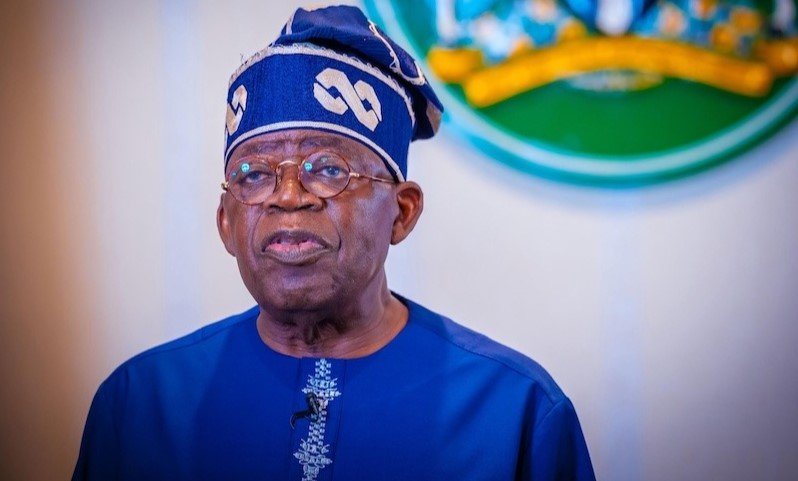THE Presidency has issued a strongly worded rebuttal to a recent editorial by Daily Trust newspaper, accusing the publication of peddling exaggerations and misleading narratives that undermine the federal government’s efforts to address Nigeria’s socio-economic challenges.
In a statement released on Thursday and signed by the Special Adviser to the President on Media and Public Communications, Sunday Dare made available to News Point Nigeria, the Tinubu administration said the newspaper painted a “distorted picture” of a nation “overwhelmed by hunger, hardship, and helplessness,” while ignoring verifiable facts and ongoing interventions.
“We were not surprised by the newspaper’s opinion, as the paper has consistently and deliberately misinformed its readers about the government’s policy,” the statement read.
“The Tinubu administration believes in the right of the media to offer constructive criticism, but it must be anchored on facts, not distortion or selective pessimism.”
One major point of contention was the editorial’s reference to a UNICEF-linked report which stated that 33 million Nigerians could face hunger in 2025.
The Presidency clarified that this figure was a worst-case projection from the Cadre Harmonisé Food and Nutrition Insecurity Analysis, co-authored by several institutions including the Federal Government of Nigeria, FAO, WFP, and UNICEF.
The report does not reflect current figures but assumes no intervention between June and August 2025, a scenario the administration insists is already being actively averted.
The government outlined a range of actions taken to prevent the predicted food insecurity scenario, including the release of over 42,000 metric tons of grains from strategic reserves, 117,000 metric tons under additional procurement, the activation of a Food Security Council, and scaled-up emergency nutrition efforts in several northern states.
The editorial was also faulted for labelling the naira as “worthless.” In response, the Presidency noted that the naira had rebounded significantly from its lowest rate of ₦1,800/$1 in March 2024 to about ₦1,525/$1 as of August 1, 2025.
According to the statement, this turnaround stems from increased oil revenues, restored investor confidence, reforms in monetary policy, and a reduction of FX backlog by over $4 billion, citing Central Bank data.
“The naira has not collapsed, it has been corrected and is now recovering,” the statement affirmed.
The Tinubu government also highlighted pending tax reform measures set to take effect in January 2026, which include the consolidation of over 60 overlapping taxes, exemption of essential goods from VAT, and harmonisation of state and federal tax regimes.
On the social safety net, the government defended the continuation of the National Home-Grown School Feeding Programme, currently serving over 9.8 million children in 53,000 schools, contrary to claims that it had “fizzled out.”
In addition, the Renewed Hope Conditional Cash Transfer has provided ₦75,000 each to over three million households, with plans to scale to 15 million. Other programmes include tuition support to over 396,000 students via the NELFUND loan scheme and financial assistance to over 250,000 MSMEs.
Citing the FAO Food Price Index, the government stressed that food inflation is a global crisis, not peculiar to Nigeria. Global prices remain 22% above 2019 levels, with countries such as Kenya, Ghana, Pakistan, and Sri Lanka facing similar hardship.
Nigeria, the Presidency said, has rolled out targeted responses such as a ₦200 billion investment in all-year farming, 500,000 farmers receiving input support, and the establishment of a National Commodity Board to stabilise prices.
As part of its long-term strategy, President Tinubu has approved a Renewed Hope Ward Development Programme (RHWDP) targeting all 8,809 administrative wards across the country. The programme aims to lift local economies by supporting 1,000 economically active individuals per ward, focusing on job creation, rural infrastructure, power supply, and food security.
The initiative, already endorsed by the National Economic Council (NEC), aligns with the administration’s goal of building a $1 trillion economy by 2030.
While the Presidency acknowledged the economic pain felt by Nigerians, it urged critics and the media to avoid what it described as “alarmist narratives” that undermine national morale and misrepresent the intent and impact of the administration’s policies.
“This administration does not ask for silence in the face of hardship. It asks only for fairness and a shared commitment to rebuilding this country, not just exaggerating its pain,” the statement concluded.







